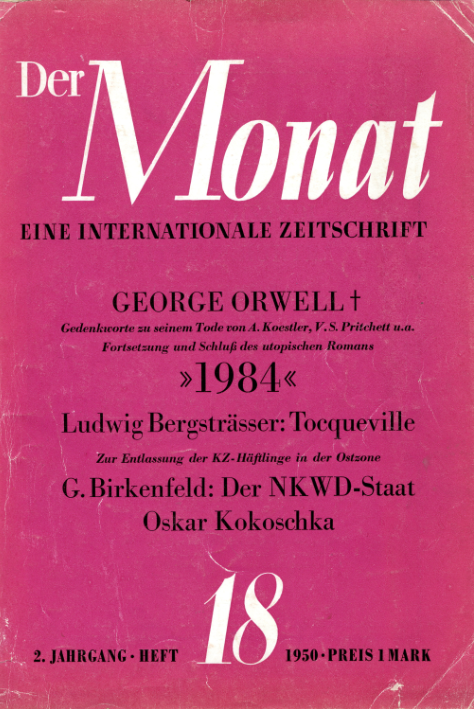
Demokratischer Humanismus
review of: L. Susan Stebbing: Ideals and Illusions. Thinker‘s Library, Watts, London.
More...We kindly inform you that, as long as the subject affiliation of our 300.000+ articles is in progress, you might get unsufficient or no results on your third level or second level search. In this case, please broaden your search criteria.

review of: L. Susan Stebbing: Ideals and Illusions. Thinker‘s Library, Watts, London.
More...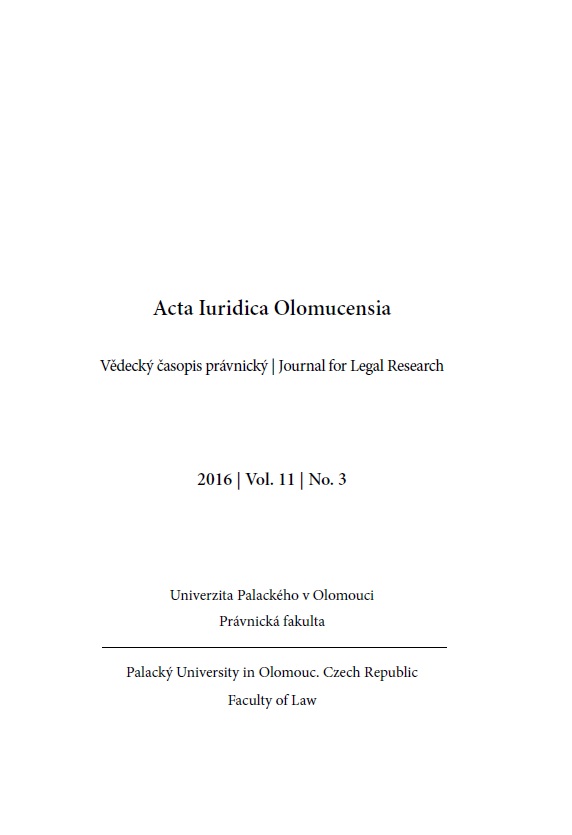
The article presents monograph of a university pedagogue Jan Kysela dealing with interdisciplinary influence of constitutions, or more precisely constitutional law, on the political environment. The book of average extent contains remarkable enumeration of quoted sources what makes it an exhaustive summary of existing scientific researches and possible inspiration source for new researchers.
More...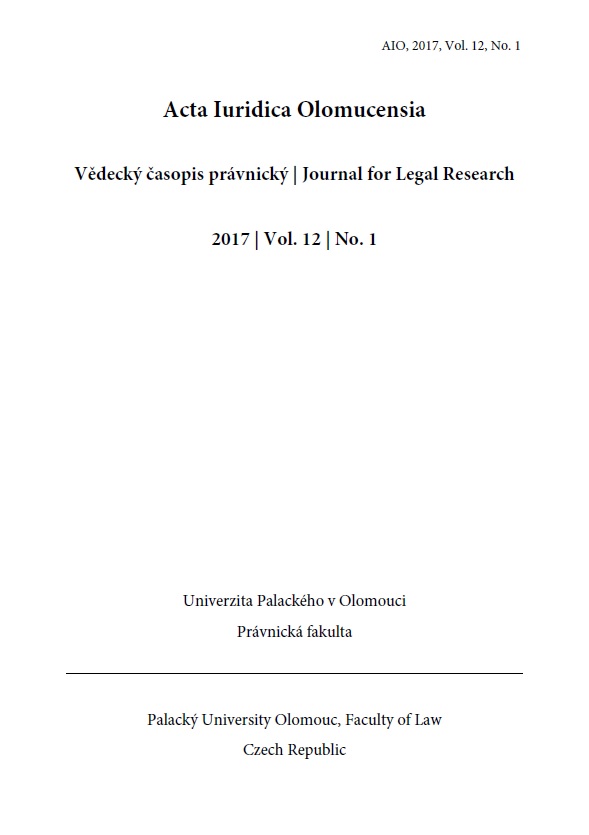
European law defines the entry ban as an administrative or a judicial decision or an act by which for a specified period of time an individual is prohibited from entering its territory and reside there. An entry ban prohibits individuals from entering the state from which the individual was expelled, it is valid for a certain period of time and ensures that individuals who are considered dangerous or undesirable do not receive visa or any other permission to enter the territory. Under European law the entry ban is recorded in the database called the Schengen Information System. States have the right to decide whether foreigners have access to its territory, but must respect European law, the European Convention on Human Rights and the other guarantees of human rights.
More...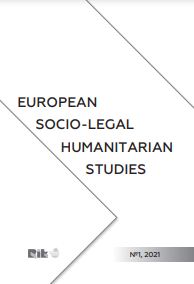
The authors explore the principle of humanism as a fundamental principle of building a modern state by the rule of law. According to the results of the study claim - humanism, in our opinion, as a legal category, is a worldview that considers man as a higher, self-sufficient and self-aware value. Humanism expresses the attitude to man in at least two ways: recognizes the social value of the human person her assessment. Thus, humanism is a certain moral requirement for human behavior, is a certain category of moral awareness of man of the highest social value in the state.
More...
The article examines the theoretical and legal features of the formation and development of the judicial system in modern conditions. Various theoretical approaches to understanding the role of the judiciary in the process of state formation are analyzed. International legal documents are studied, which are devoted to the functioning of the judiciary, ensuring its independence and guarantees of judges. It is noted that today, at a time of challenges for the peoples and states that have chosen the democratic path of development, including Ukraine, it is important to ensure the continued effective functioning of the judiciary in view of international standards of its construction and development.
More...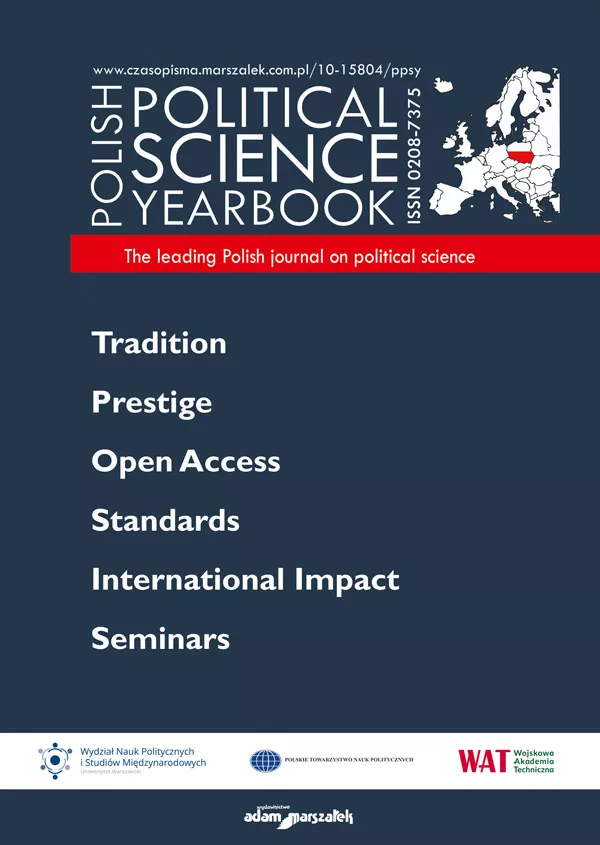
In June 1956, the technique of masking emotion management was used effectively. On the other hand, the intensification technique in October of the same year was fully effective. In December 1970, the masking technique proved to be completely ineffective and only the use of the intensification technique brought results. In June 1976, the masking technique proved to be effective within a limited time range. On the other hand, in the summer of 1980 and the following months of the existence of the legal “Solidarity”, the party-state apparatus was not able to effectively manage emotions. The breakthrough was the introduction of the martial law and forcing a significant part of society to be submissive and conformist. The use of the masking technique against Solidarity activists was only effective for a short time. On the other hand, the techniques of managing emotions during the kidnapping of Father Popiełuszko were completely ineffective. The technique of masking, contrary to a hypothetical assumption, was not the only one used by the leadership of the ruling party. In October 1956 and from December 1970, the intensification technique was used by Gierek’s team. They were effective, but at the same time associated with the need to make concessions mainly of an economic nature to the population. The correlation between the level of subjectivity of protesters or opposition social groups and the effectiveness of the management of emotions by the leadership of the party-state apparatus is clearly visible. The greater the level of objectification of the protesters, the more effective the management of emotions. Crossing the threshold of subjectivity by opposition social groups makes the management of emotions generally ineffective. The crowd’s emotions can be manipulated, and it is impossible to control from the outside the emotions of organised social groups that can act less or more rationally and teleologically. Furthermore, the cases of the emergence of a mass conspiracy after the martial law period and the social reaction to the kidnapping and murder of Father Popiełuszko indicate that it is not necessary to have a high level of organisation and the existence of elites controlling the behaviour of a given social group. The decisive factor is the existence of internalised values that allow to judge a given issue in terms of severity, level of threat, and set of acceptable remedies. Therefore, the existence or non-existence of political subjectivity is determined to the greatest extent by social awareness. Subjectivity is the ability to decide independently. In the case of the political subjectivity of a nation or other large social groups, this feature should dominate the consciousness of the overwhelming number of members of these groups. Managing emotions was part of the strategy and tactics of the leadership of the partystate apparatus with social protests. It was one of the components of striving to achieve the most important goal – a return to the status quo ante, i.e., the political objectification of all those who dared to collectively oppose the rules of the communist regime. “Restoring order” in its essence has consisted in striving for enslavement or at least to bring about a state of powerlessness by inducing fear, conformity, and a sense of hopelessness. The paper is only an outline of the way of analysing the relationship between the management of emotions and the political subjectivity level. Conducting more precise research on establishing more accurate relations between the emotions felt by the ruling elites, their decisions, evoked emotional reactions, and protesters’ political subjectivity levels requires developing theoretical tools and a more precise analysis of the emotions of participants on both sides of social protests. In the first case, it is worth considering, for example, the division of emotions into increasing social ties (creating) and destroying such ties (destructive), e.g., between the rulers and the governed. The use of at least two classifications of emotion management techniques will allow for a multifaceted analysis of the mentioned events. In this case, one can treat the way Gierek’s team managed emotions after taking power as, on the one hand, an intensification of “creating” emotions, and on the other hand, as a deintensification of emotions that destroy social ties between the rulers and the governed. The relationship between the management of emotions and the level of political subjectivity of the protesters is worth further study.
More...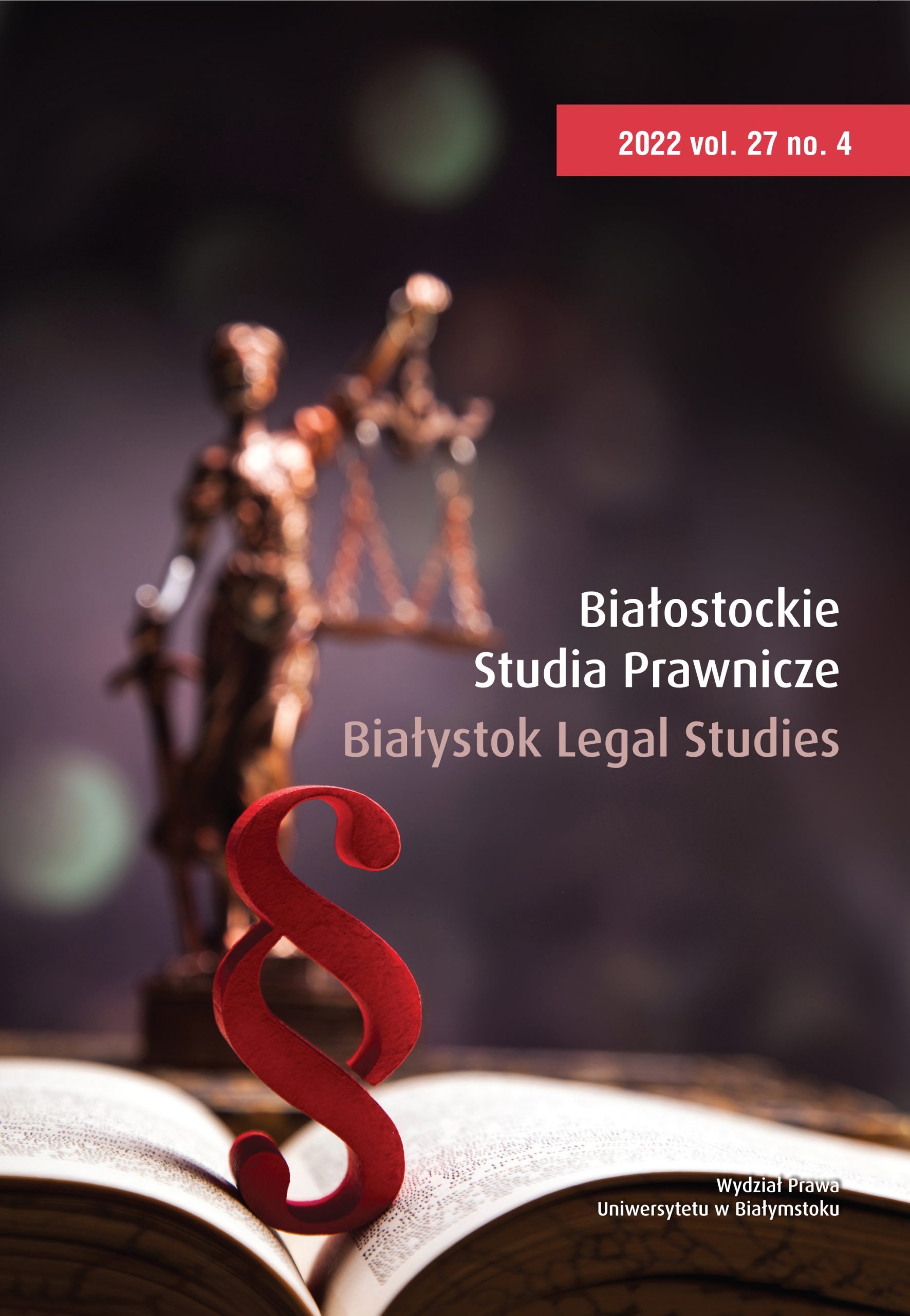
The radicalization of views and the conflict concerning the possibility of, and the rationale for, the institutionalization of termination of pregnancy in Poland usually gain prominence before elections, when political parties, when presenting their programs, bring controversial issues that evoke extreme emotions to the debate. The appearance of the topic of abortion in the discourse is always accompanied by increased attention of the media, which makes the issue even more attractive for politicians. An analysis is presented of the bills amending the Act of 7 January 1993 on family planning, protection of the human fetus, and the conditions of permissibility of abortion, also known as the “Family Planning Act” or the “Anti-Abortion Act,” as well as of parliamentary debates1 focused on the issue of the right to abortion in Poland, that is primarily those debates where the issue of expanding or narrowing the enumerative catalog of prerequisites for permissibility of abortion was discussed. The temporal scope of the subject matter includes the legislative processes that took place before the eighth term of the Sejm. The paper is an attempt to interpret the regularities observed during the research and does not aspire to be an exhaustive description of the topic.
More...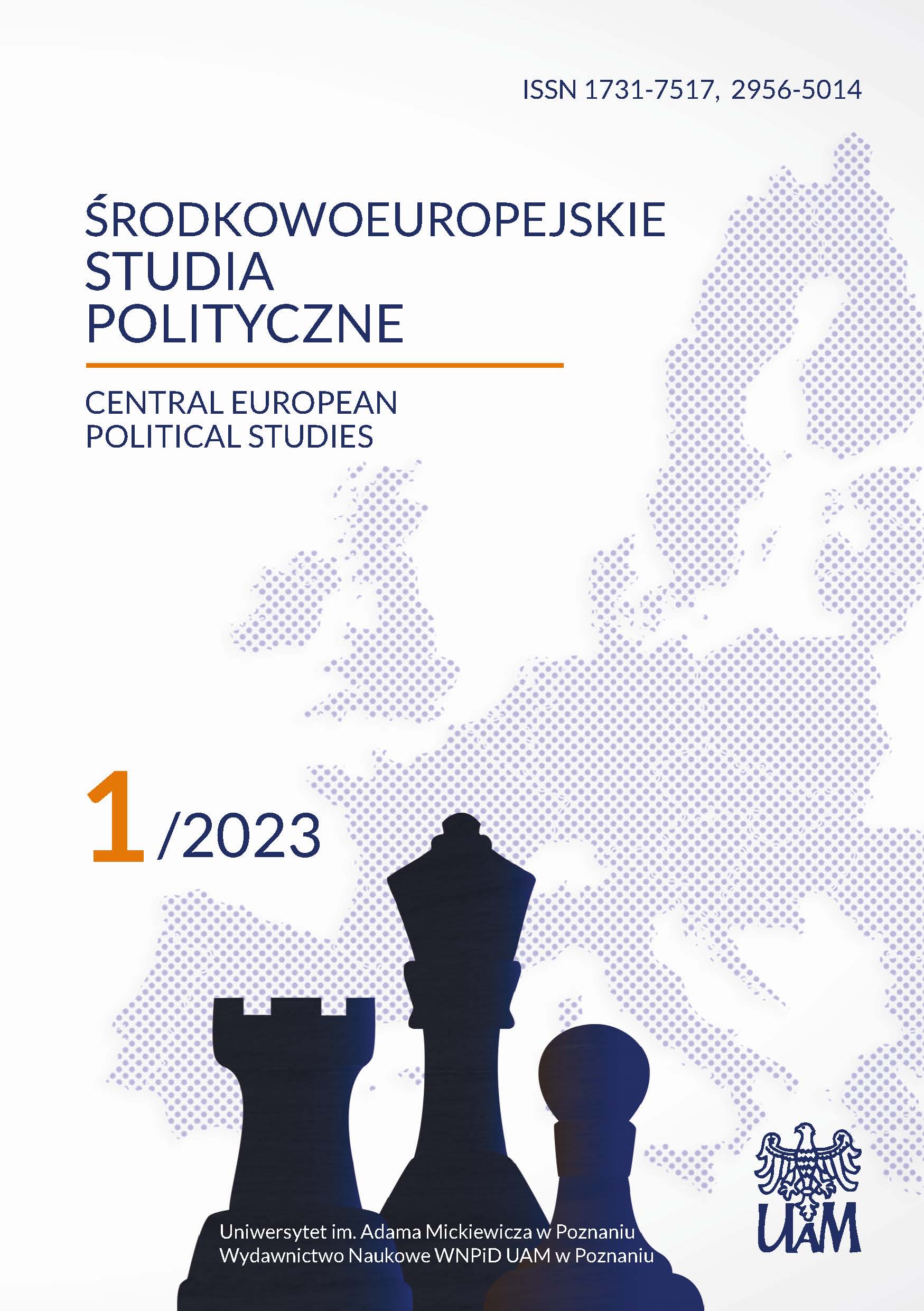
The material scope of the research problem encompasses issues concerned with the essence and sense of the legal definition of a terrorist offence in the Polish criminal law. The Polish legislator implemented the definition of a terrorist offence under Art. 115 § 20 of the Criminal Code in 2014, which was caused by the necessity to align the Polish law with the EU regulations. Metaphorically, it needs to be recognised that the definition in a way modifies the prohibited act and the scope of criminal liability. The structure of the legal definition of a terrorist offence comprises two elements, which serve as conditions to be fulfilled by the perpetrator. The first condition is formal and concerned with the severity of the sanction apportion to the perpetrator’s main act, while the second condition is motivational and concerned with a special goal actuating the perpetrator. Undoubtedly, the institution of the terrorist offence in the Polish criminal law serves a dissuasive and repressive purpose in relation to perpetrators of such offences. In order to elaborate the objective scope of the analysis, the following research questions are presented in the paper: (1) To what degree is the legal definition of a terrorist offence effective in the criminal policy regarding prevention and combating terrorism? (2) To what degree may the content of the legal definition of a terrorist offence infringe the principle of nullum crimen sine lege certa? The analysis is an overview, and has been performed considering an institutional and legal approach. In this approach, textual, doctrinal, and functional interpretations have been applied to the content of the legal definition of a terrorist offence. Given the discrepancies arising from the ambiguity of the terms used in the definition, relatively great emphasis has been laid on linguistic interpretation.
More...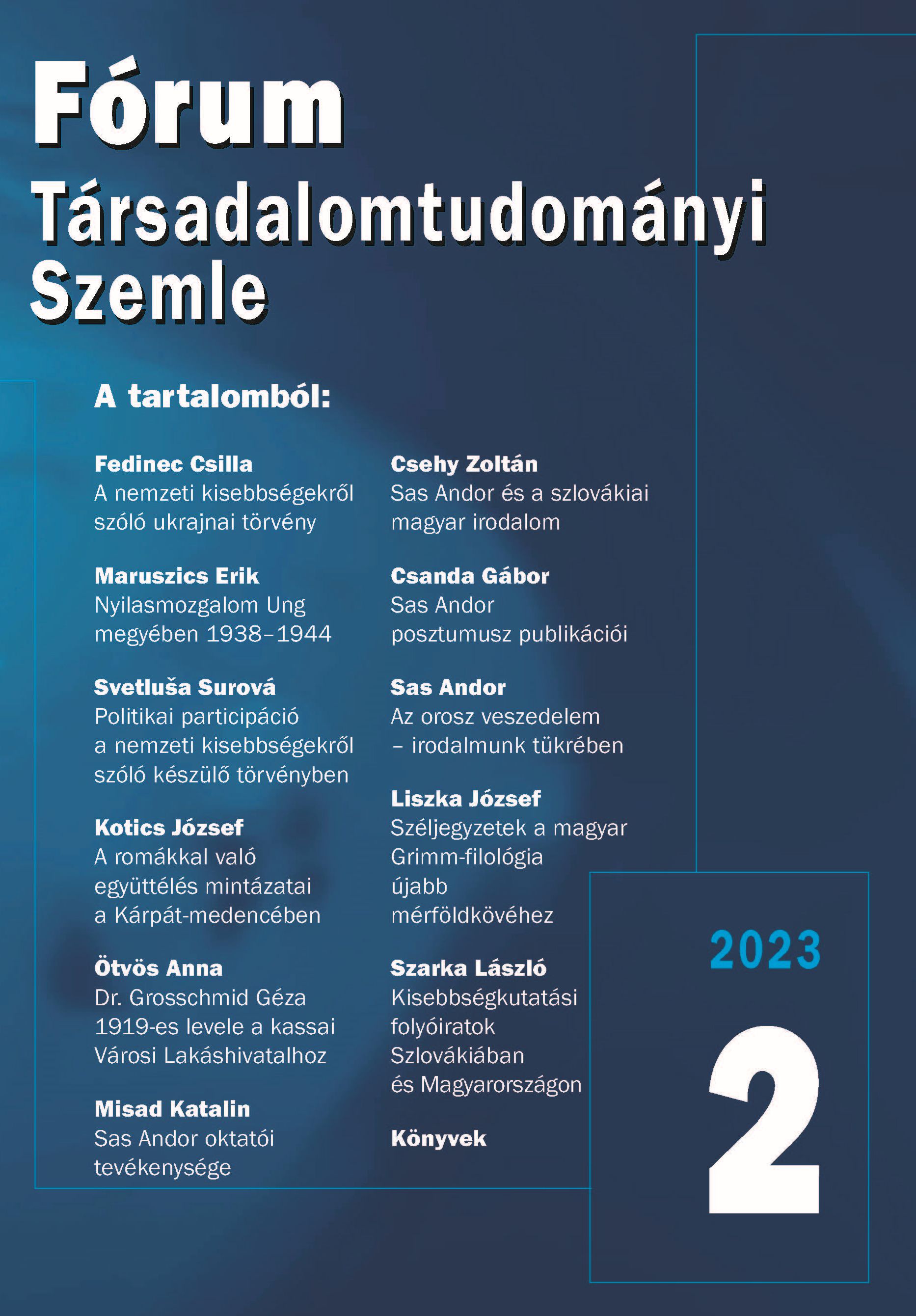
On December 13, 2022, the Verkhovna Rada of Ukraine adopted the law “On National Minorities (Communities) of Ukraine”. The law establishes the concept of "national minorities (communities)", the rights, freedoms and obligations of persons belonging to national minorities (communities), the specific features of the state policy aimed at the realisation of the rights and freedoms of persons belonging to national minorities (communities). The study analyses how well the legislation meets these requirements.
More...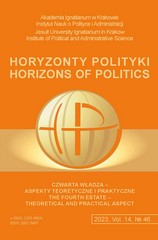
RESEARCH OBJECTIVE: The main aim of the article is the presentation of the basic political ideas contained in S. Spielberg’s movie The Post. Moreover, the specific aim is to present the mythological message of the film and to list the elements that construct it. Another specific goal is to present the ways to reach a mass audience with an ideological message. THE RESEARCH PROBLEM AND METHODS: Which ideas of the fourth power are exposed in the movie addressed to the mass audience in the US? What are the arguments supporting these ideas? When did the fourth estate in the American system weaken, and why? The analysis uses the mythological concept of R. Barthes and the structural method developed by him (myth analysis). THE PROCESS OF ARGUMENTATION: The introductory considerations concern the concept of the fourth estate and political myth, then the core of the article discusses the message of the film and indicates the basic problems discussed. RESEARCH RESULTS: S. Spielberg, in the movie addressed to a mass audience, presented the moment of shaping the idea of the fourth estate, in the historical sense it is the war in Vietnam, in the political sense (Pentagon Papers) a conflict between freedom of speech and state security. The fourth power is a political idea, the aim of which is to control the actions of an authority and to defend the domain of the press, its right to form opinions and freedom of speech. CONCLUSIONS, INNOVATIONS AND RECOMMENDATIONS: The conclusions of the article are addressed to political science researchers, journalists and politicians. The article shows how the control functions of the executive and legislative power are weakened, and also diagnoses how to repair a malfunctioning political system. In addition, a new source of political analysis, a mass movie, was identified.
More...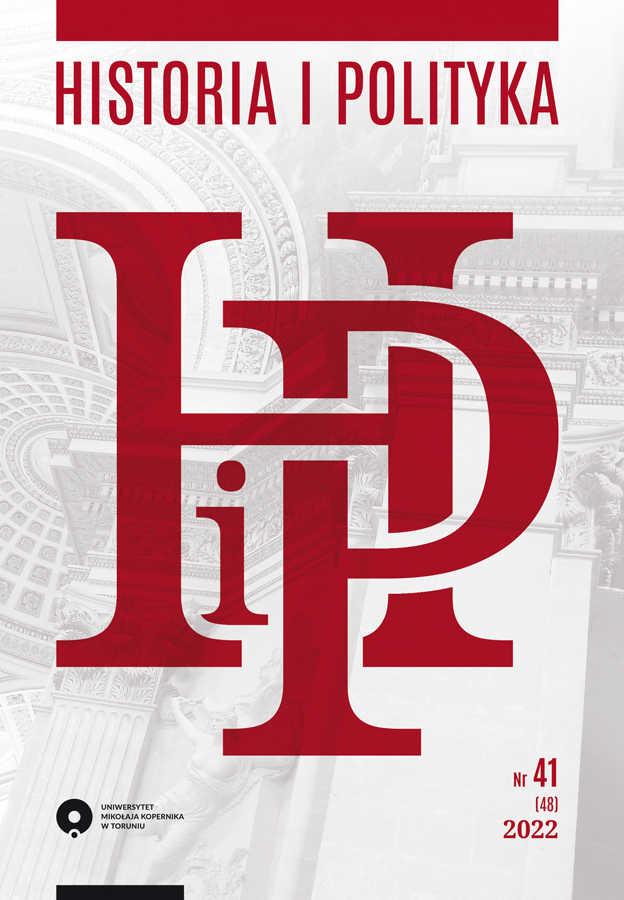
Research on the relations between politics and law has rich tradition, enjoys considerable scientific interest, and has significant perspectives for the future. It does not, however, mean that all of the methodological problems have been solved – and this is a necessary condition for conducting such a common political-legal research that would be reliable and cognitively effective. In the article, an attempt has been made to consider the main methodological challenges that should be over- come if common research of political scientists and legal scholars is to create new quality of social research. The author expresses a sceptic attitude towards the possibility of integration of knowledge in the face of differences in subject matters of law and politics.
More...
The article is based on the author’s monograph The Theory of Authority. This paper provides complex theoretical explanation concerning the phenomenon of authority. It is the theoretical study, findings of which let to understand this phenomenon better, as well as offer ontological and epistemological assumptions ready to be verified through further theoretical and empirical research. The presented understanding of author- ity proves the necessity of integrated political, legal and sociological research.
More...
Over the past several years, theorists concerned with liberal democracy and republican freedom have raised various objections to accounts of political and legal pluralism similar to the one the author presented in his monograph The Structure of Pluralism and later developed in several essays on pluralism and justice and on relations between church and state. Indeed, the so-called jurisdictional pluralism may stand in greater tension with democratic (or republican) authority than some of its proponents acknowledge. It is useful, then, to identify some unstated presuppositions in the account of jurisdictional pluralism (or at least in the author’s version of it) which might be the source of this tension. The article is a tentative effort to reformulate pluralism in a way that makes those tensions clear. As all first attempts, it will surely be unsat- isfactory and incomplete, but at least it should serve to clarify some differences in fundamental assumptions.
More...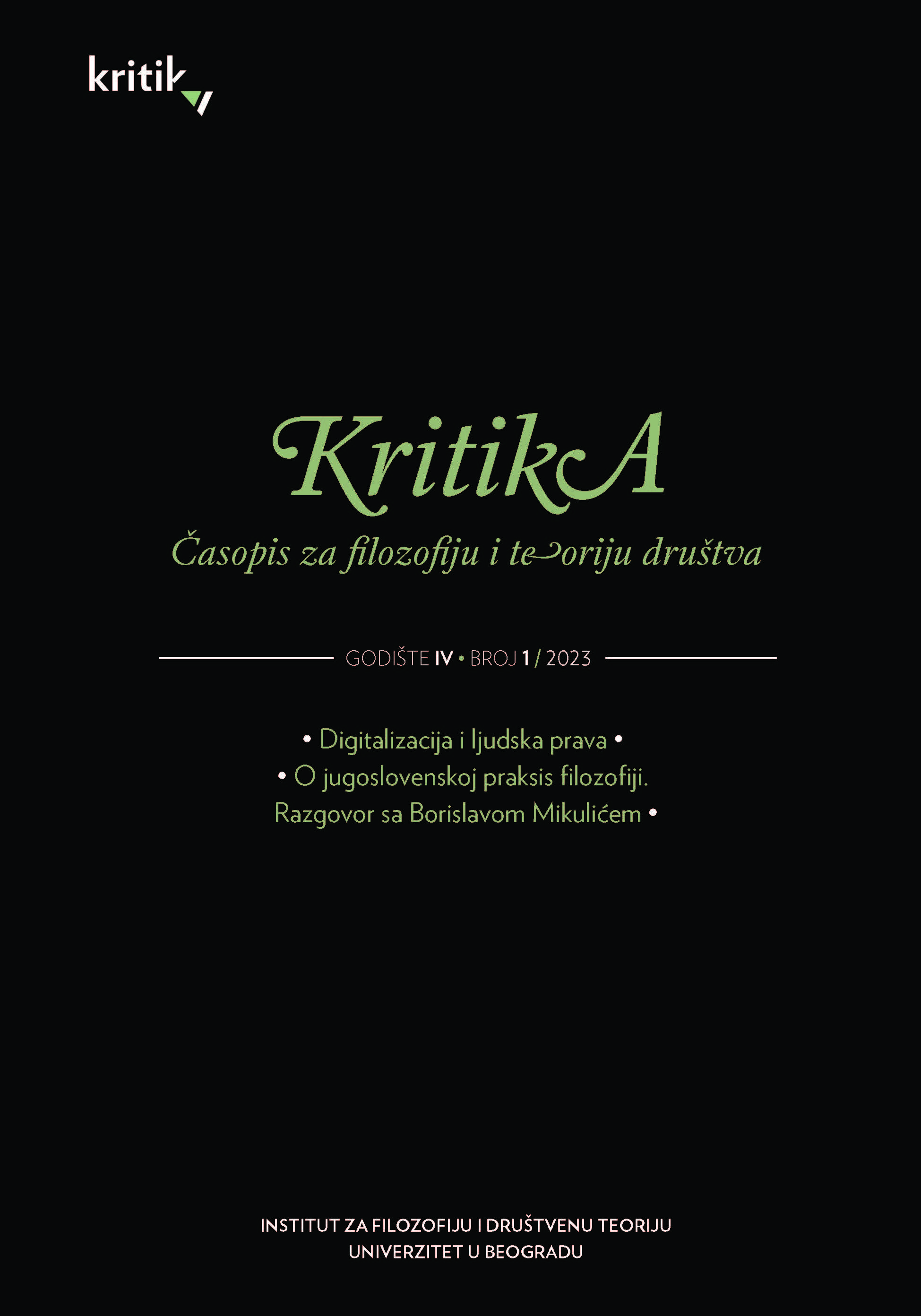
Starting from the existing scientific insights and taking in consideration both the global challenges and the needs of the Serbian society, this paper examines the possibilities for improvements in the existing public policies that would respect the existing intellectual property rights (IPRs) and upkeep the advantages of digital transformation, but also respect the principles of inclusion and social justice, as well as the need to protect the freedom of expression and creation. All the data and insights collected during the research have confirmed its initial premise: in the context of rapid digitalisation, economically weaker subjects are more inclined to give up taking various steps related to the acquisition and management of IPRs. In other words, the digital gap significantly increases the gap in availability and, consequently, economic and social valorisation of various IPRs. Overcoming of this problem is only possible by applying a bundle of measures that would lead to the reforms of the existing public policies; among all those measures, a particular attention has been paid to the following: the systemic analysis of the data regarding various requests for the protection of different IPRs, the assessment of the main social and economic consequences of digitalisation in this field, an increased transparency in the functioning of governmental bodies, the specialised educational programmes and a more adapted adoption of the European Union’s acquis in this field.
More...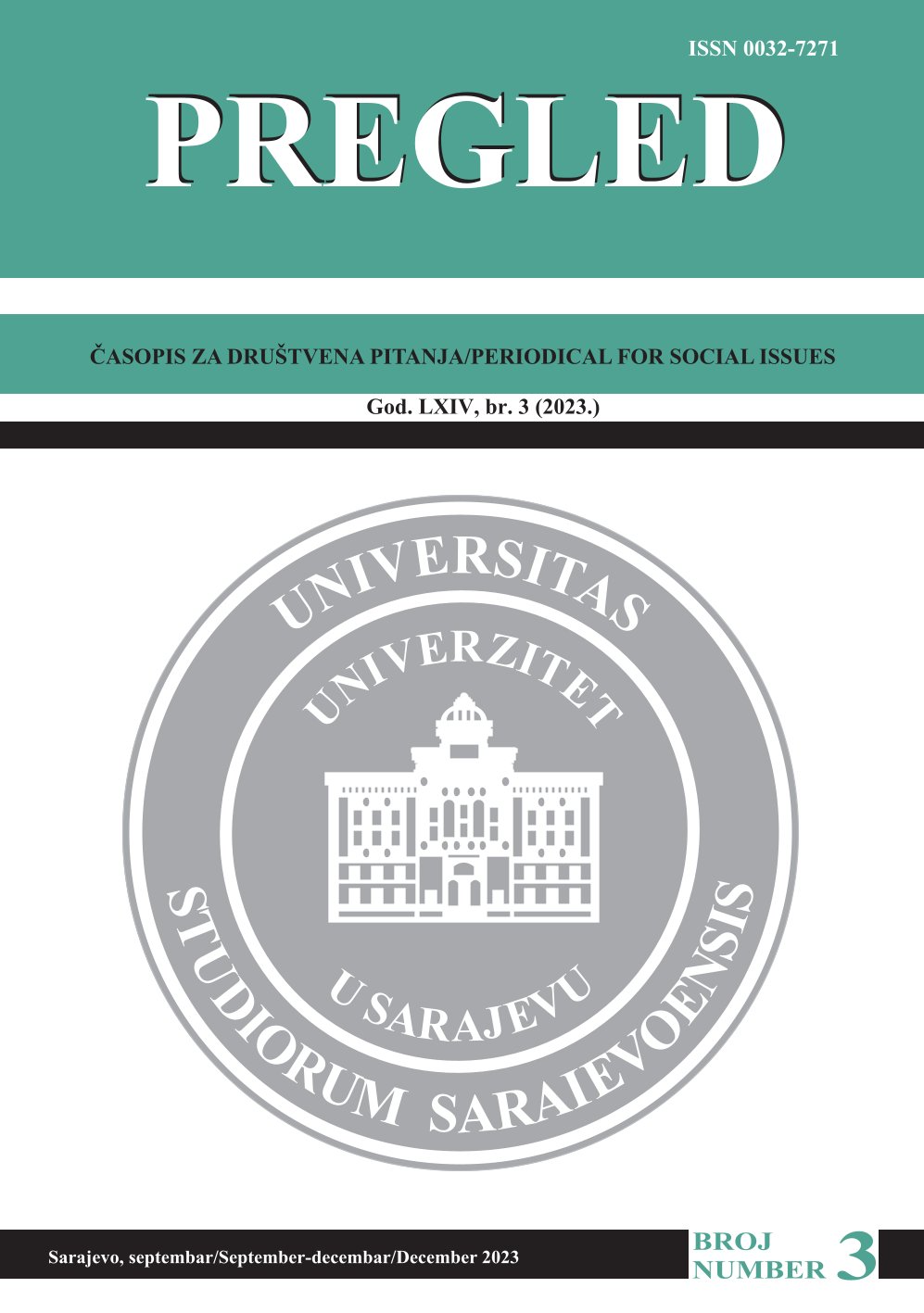
The paper examines the question of exercising jurisdiction based on the Constitution of BiH from 1995. The author points out that the question of competence is very often misunderstood, and the main reason for such an approach is a legally unfounded understanding of the nature of state power, the concept of sovereignty, and the concept of competence itself. The paper emphasizes that all power that can be based on the Constitution of BiH belongs to the State of BiH, and that the distribution of competences between the State of BiH and its entities does not mean the distribution or reduction of state power, but only the distribution of the authority to exercise state power. The exclusive competences of the institutions of BiH significantly exceed the number of competences that are often attributed to the institutions of the state of BiH in legal science and political practice. The author emphasizes that according to the Constitution of Bosnia and Herzegovina there are several categories of exclusive competence of the institutions of Bosnia and Herzegovina, and that for a legally valid determination of these competences it is necessary to analyze the entirety of the Constitution of Bosnia and Herzegovina, as well as the General Framework Agreement for the Peace of Bosnia and Herzegovina.
More...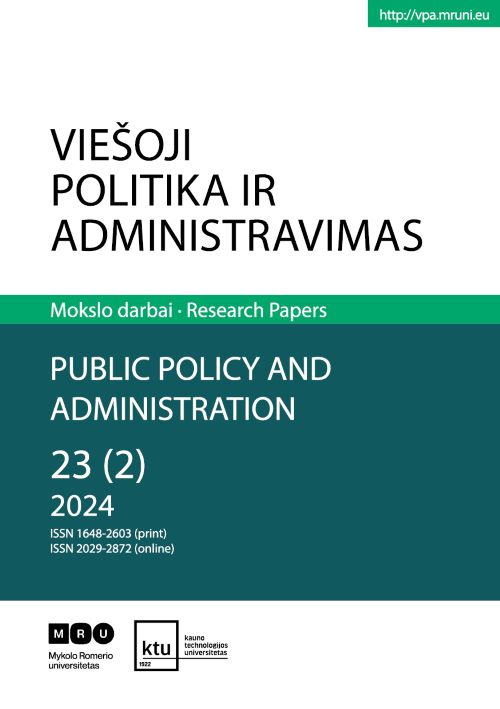
The purpose of this article is to present the results of a qualitative study conducted using a questionnaire in February 2023, which aimed to reveal the peculiarities of the legal status of the mayors of Lithuanian municipalities in the presence of two different municipal structure models (the model that was applied from March 2015 to April 1, 2023, and the model that has been applied since April 1, 2023). The idea of conducting this research arose just a few weeks before the regular municipal council and mayoral elections took place on March 5, 2023, a few months before the new Local Self-Government Law came into force on April 1, 2023. This law introduced a new municipal structure model and changed the dominant role of the mayor in Lithuanian municipalities. This research is unique because of the target group chosen for it – only the ten mayors of Lithuanian municipalities who have served in these positions for four or more terms (20 or more years) were consulted. The results of the research show that: the mayors have a good understanding of the specifics of the new municipal structure applied since April 1, 2023; and the mayors are essentially prepared to take on a new role (the role of the municipal executive institution), replacing their previous role (the role of the chairman of the municipal council). However, the fact that the mayor of the municipality, who continues to be the organizer of municipal council meetings (the other role of the mayor of a Lithuanian municipality), will not have the right to vote when the municipal council makes decisions at its meeting is cause for concern. Mayors are also worried about the different interpretations regarding the possibility of transferring part of their powers to vice mayors (political appointees). The results of this research could be useful for improving the legal regulation of the powers of municipal institutions (both municipal councils and municipal mayors, in terms of the scope, composition, transfer and delegation of powers to other municipal entities) and the relations between these institutions.
More...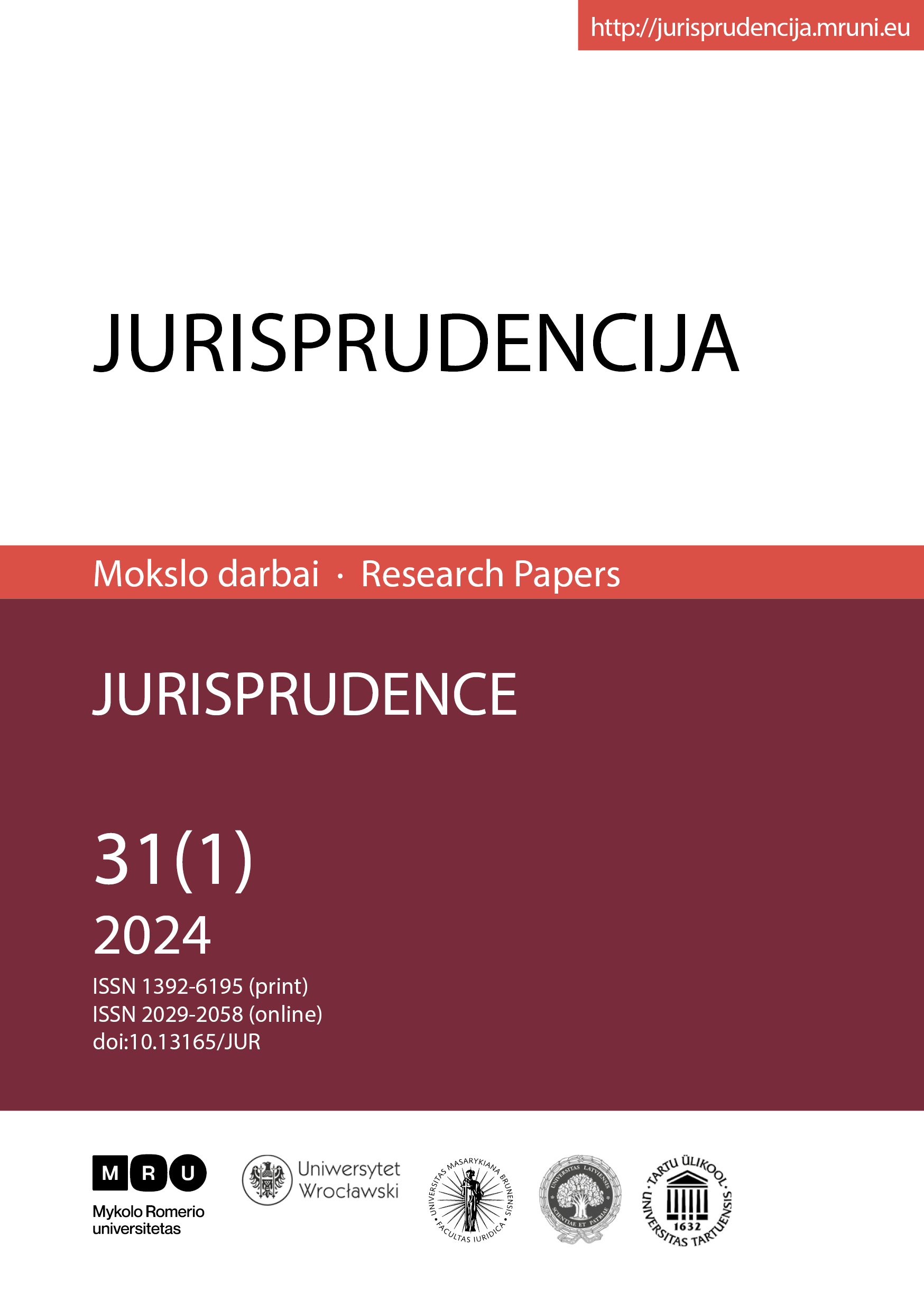
Elections are a fundamental element of democracy, allowing citizens to express their will and participate in government formation. In order for elections to take place according to procedures that are equally understandable to all participants in the process and to ensure that all citizens can participate in elections on equal terms, regardless of their gender, nationality, social status, or other circumstances, legal acts regulating the organization and execution of elections are adopted. This article reveals the complicated and extended legal process that accompanied the preparation and adoption of the Election Code in Lithuania. It also analyzes how the legal regulation of elections changed after the Electoral Code came into force, and why, less than a year since the application of the codified legal act which changed six laws, there are many proposals to change it again. Finally, the article considers why the Election Code stands out from other codes in force in Lithuania with a higher legal power, although due to procedural legal norms, large-scale election law is described in even greater detail than other codified areas of law.
More...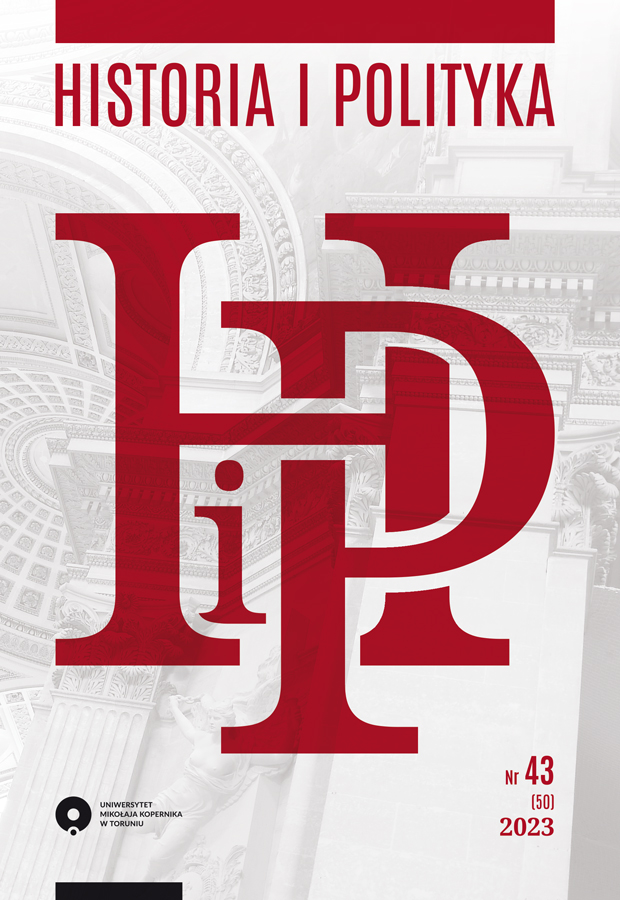
The goal of this article is to use available archival data, legislature, information on power structure and memoirs to reconstruct strategies of subject-ing Polish Supreme Court and its judges to the interests of the regime of the Polish People’s Re-public in the 1945-1989 period. The article is an attempt to assess the efficiency of these strategies based on internal reports of the government and party and to develop a simple statistical model to assess the maximal capacity for control of Supreme Court workload. The results show that due to highly complex nature of law, multitude of judicial tasks and limited resources of the elite, only a few of the strategies could and did work. Specifically, analysis of cognitive capacity of controller group shows that only extremely focused, coordinated and specialized efforts could successfully diagnose the judicial work. The political influence on law seems to have been limited to personal influence, candidate selection, re-evaluation of judges and filling of strategic position within the court
More...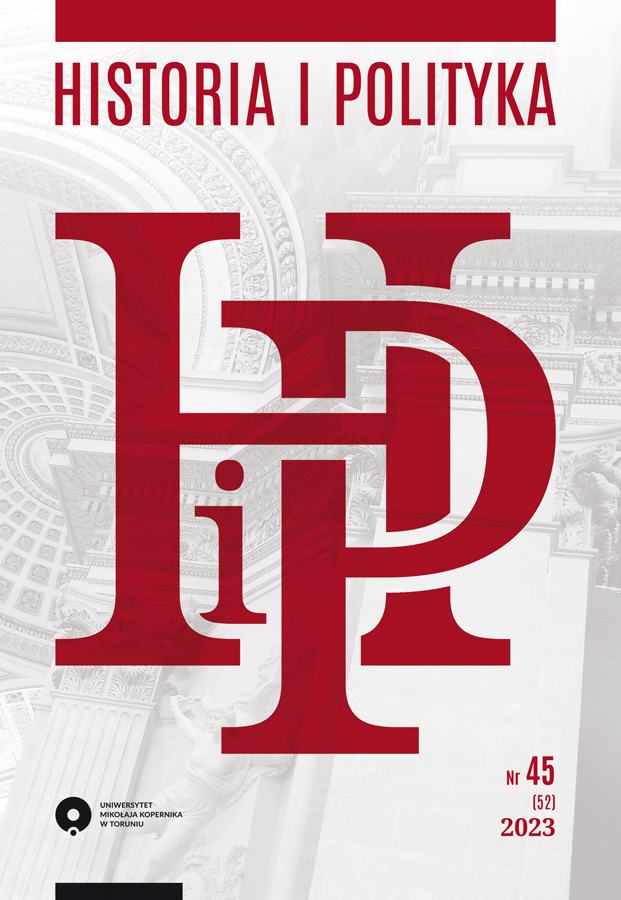
The aim of the considerations undertaken was to analyse the discussions concerning self-govern-ment, and in particular local self-government, conducted in the pages of official publications published during the communist period. The time frame covered the period from the emergence of „Solidarity” in 1980 to the Round Table Talks, in which discussions were held first in the Polit-ical Reform Team and then a sub-table for local government issues was established, but without taking the latter event into account. The cognitive aim was to seek answers to the following research questions: 1) why did the idea of local self-govern-ment, especially in the second half of the 1980s, i.e., in the period of exhaustion of the state model of the time, not interest decision-making circles to a greater extent and, consequently, did not lead to a broader discussion? 2) how did opinion-making circles understand the concept of local self-govern-ment? 3) what vision related to the reconstructionof local self-government was presented? 4) what scope, competences and what role was envisaged for this institution? 5) did these visions specify how local government would be financed? and 6) was the transformation of the electoral system also undertaken in connection with the assumed discussions?
More...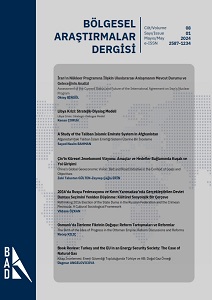
The Taliban's Islamic Emirate system represents an unconventional political model in the contemporary era, characterized by a lack of clear definition regarding its type, nature, and organizational structure. This study aims to provide a clearer understanding of the Islamic Emirate system, especially its nature, structure, and features. The findings of this study show that the Taliban Islamic Emirate system has characteristics such as autocratic-totalitarian tendencies, personalized governance, systematic disregard for the rule of law, patriarchal tendencies, and a tendency to monopolize power. These identified features contribute to a more comprehensive understanding of this enigmatic system.
More...